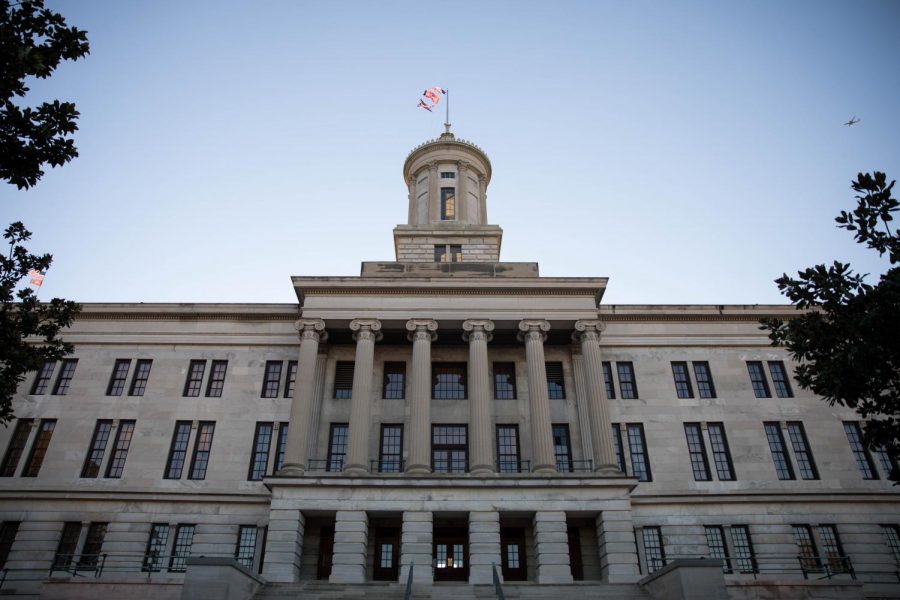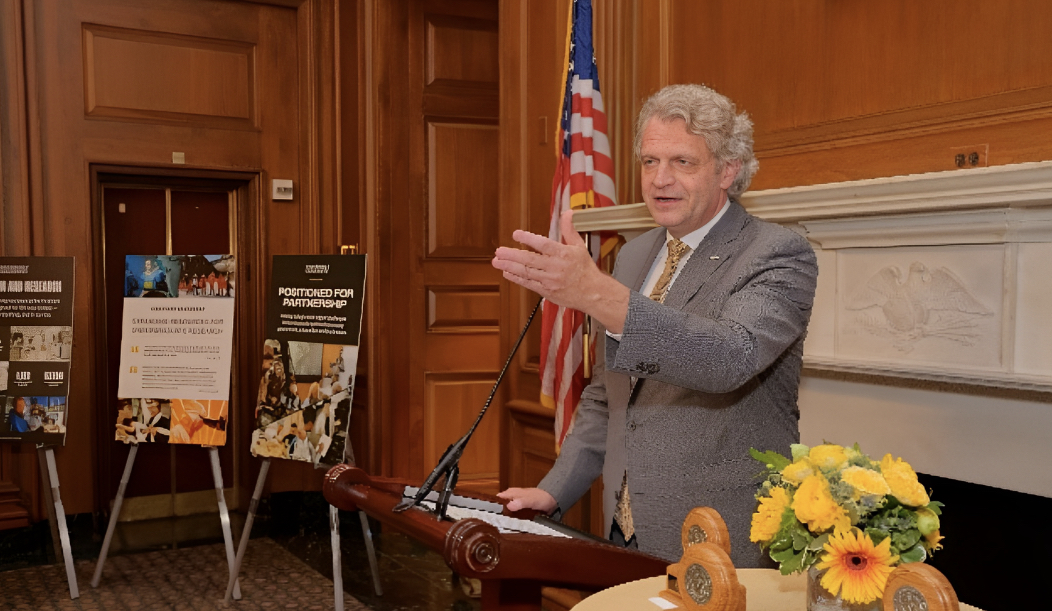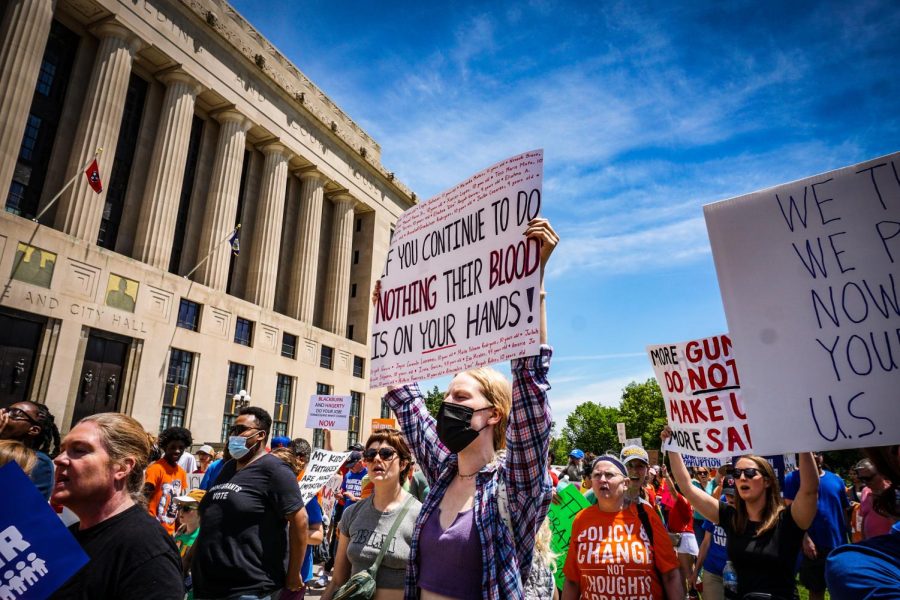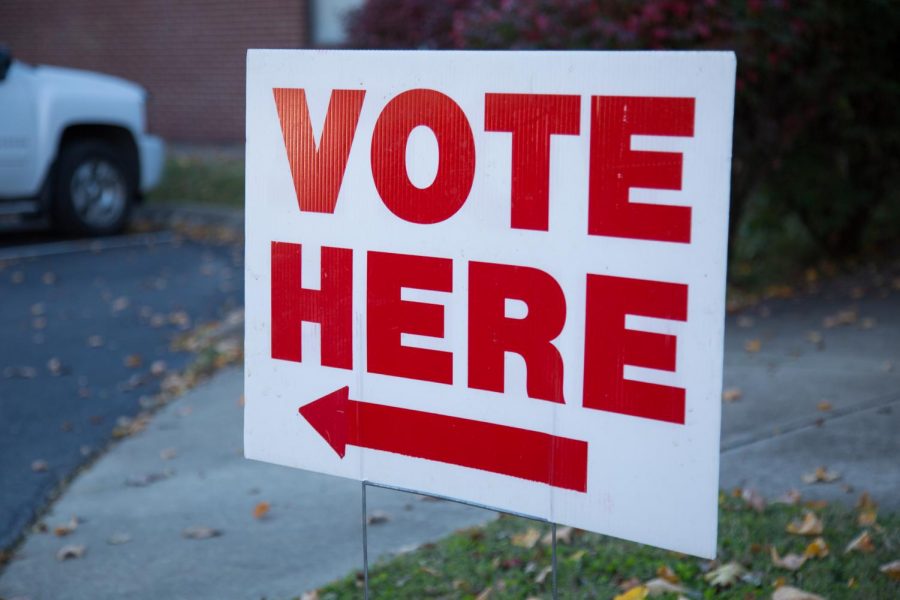Vanderbilt alum Bill Hagerty (BA ‘81, JD ‘84) is set to face Democrat Marquita Bradshaw as the Republican nominee for the United States Senate in the Nov. 3 general election.
Hagerty, endorsed by President Donald Trump, served as the U.S. ambassador to Japan from 2017 to 2019, stepping down to prepare for his Senate run. Bradshaw, on the other hand, is the Environmental Justice Chair of the Sierra Club’s Tennessee chapter and the first black woman to be nominated for statewide office by any major party in the state of Tennessee.
If Hagerty wins the election in November, Vanderbilt’s streak of alumni serving in this seat in the U.S. Senate since 1985 will remain unbroken. Beginning with former Vice President Al Gore in the 1984 Senate race, who attended both the Vanderbilt Divinity School and Law School, three different Senators have since held the seat. The next election will decide who will fill alum Lamar Alexander’s (BA ‘62) vacated seat. Alexander has served since 2003.
“Vanderbilt students are incredibly talented and ambitious, and their four years here—or however long they attend depending on the student—really cultivates these characteristics. We certainly saw this with the former Vice President [Al Gore] and Senator [Lamar] Alexander, who had a very long and distinguished career,” Geer said. “Vanderbilt instills in its students the importance of giving back, which prepares the next generation of leaders.”
Hagerty said he is confident in his campaign and feels that it has “executed very, very well” thus far.
“I won a majority of the vote there [Republican primary], which had always been our plan, and we’re looking now at the general election,” Hagerty said. “I feel that we’re in a good place there as well.
Hagerty credited much of his career success to his time spent as both an undergraduate and law school student at Vanderbilt.
“[I] very much appreciate the fact that Vanderbilt helped give me the foundation and the base to be able to come and do this. I would’ve never dreamed when I was a student at Vanderbilt, that I would be in a position to be running for the United States Senate today,” Hagerty said. “[Vanderbilt] really gave me a chance to live the American dream.”
Hagerty mentioned that one of the most important aspects of Vanderbilt in regard to his career is the network the school provided him.
“I learned to interact with people from all over, not just the United States, but people from all over the world. It was a great experience for a small-town kid, like me, to have exposure to such a broad network of people,” Hagerty said. “I still remain friends to this day with many of my classmates from Vanderbilt. That is a very, very formative component of my experience at Vanderbilt.”
All these components of Hagerty’s Vanderbilt experience led him to a job at Boston Consulting Group (BCG) following graduation.
“Vanderbilt also gave me the foundation and the opportunity to get a job and begin a career that I could have never imagined as a kid growing up in rural Sumner County,” Hagerty said.
Hagerty eventually left the private sector to serve as the Commissioner of Economic and Community Development for Tennessee from 2011 to 2014, during which Tennessee was named “State of the Year” for economic development twice. Following his time serving the state of Tennessee, Hagerty returned to the private sector before being drawn back into the political fold by Trump, whose message, according to Hagerty, “resonated” with him.
“As I heard candidate Trump talk more and more, he talked about something that I had not heard leaders talk about before—and that was standing up to China,” Hagerty said. “I had been very concerned for years about our dependence on China for high technology, military technology and the fact that the rules for trade and business were very uneven.”
Hagerty joined Trump’s campaign in 2016 and after his victory, served as a senior leader on Trump’s transition team, working to help the president select his cabinet. Following the transition, Trump selected Hagerty to become the next U.S. ambassador to Japan, where he had worked for three years during his time at BCG. Hagerty continued to serve as the U.S. ambassador to Japan until the Senate seat in Tennessee opened up following Sen. Lamar Alexander’s decision to retire.
“The president reached out to me and said, ‘Bill, you are uniquely qualified to step up and be a strong voice in the United States Senate,” Hagerty said. “I have gained a unique set of experiences from my career that I think fit the challenges facing our nation today very well. God willing, we will win the election on November 3 and have the opportunity to serve our state. I look forward to that challenge and being able to make a difference.”
Despite Tennessee’s history of voting red, his challenger, Bradshaw, said that she is still confident about the election’s outlook. In the Democratic primary, Bradshaw won an upset victory against the Democratic Senatorial Campaign Committee (DSCC) backed candidate, Jerry Mackler. Mackler outraised Bradshaw $2.1 million to $8,420 over the course of the primary to no avail.
“You have to look at other tools when you go up against big money,” Bradshaw said. “What we have in South Memphis and across Tennessee is the ability to connect communities, and that is a core organizing principle. Yes, money is great, but it’s just a tool and how you connect people is what really matters.”
Bradshaw also does not buy into the idea that Tennessee is a “red state.”
“What we have is about 5 million voters or more that are eligible to vote, that are registered to vote and don’t because they have lost faith in the process. Tennessee falls in the bottom of the category of voter participation,” Bradshaw said. “When you have a different type of candidate reaching out to them [voters], you will see that in the general [election] we will flip this U.S. Senate seat.”
Bradshaw said she originally became involved in politics through environmental activism shortly after the birth of her son in 1995, passing out flyers in her working-class community in South Memphis. She lived down the street from a military landfill, where the Department of Defense dumped toxic chemicals. She said that as a result, many members of her community, including her great-grandmother and many adolescents under the age of 18, started dying of cancer.
“That was what brought me into the political process,” Bradshaw said. “We were going through the process of trying to understand how environmental policies were enforced differently in African-American, brown, indigenous and poor white communities from more affluent communities—how it was connected to the political structure and how it was actually affecting people’s health.”
From there, Bradshaw said that she started working in organizing. When she was 35, Bradshaw landed her first union job through the American Federation of Labor and Congress of Industrial Organizations (AFL-CIO) organizing for UNITE HERE, a service industry labor union. Throughout the years, she has also worked with trade policy, labor rights, human rights and police accountability, eventually reaching her current position with the Sierra Club.
Given her background, Bradshaw said that she views environmental justice as a top priority in this election cycle. However, she added that she sees policy-making as a holistic process, meaning environment, racial and environmental justice priorities all need to intersect.
“When you look at environmental justice, it’s not just the physical environment that you are concerned about,” Bradshaw said. “You’re also concerned about the learning environment, the work environment, the home environment of an individual, being able to access medical care, and also the environment of how our laws are enforced and regulated.”
Both Bradshaw and Hagerty will continue to make their case for why they are the best person to represent Tennessee in the United States Senate. Early voting in Tennessee runs from Oct. 14 until Oct. 29. The deadline to request a ballot by mail in the state is Oct. 27. Election day is on Nov. 3.












